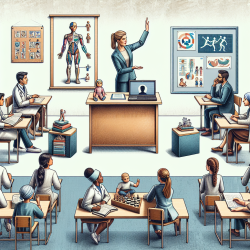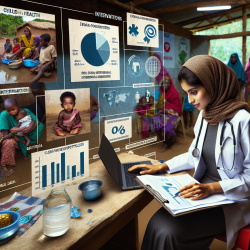In the rapidly evolving field of pediatrics, staying abreast of current knowledge and practices is paramount for delivering optimal care. A recent study published in the Israel Journal of Health Policy Research highlighted a significant gap in pediatricians' knowledge of child development and special education issues in Israel. This blog aims to translate the findings of this research into actionable steps that practitioners can take to improve their skills and encourage further research.
Key Findings from the Study
The study titled "Failure of Israeli pediatric residency curricula to cover child development and special education issues: results of a national survey on levels of knowledge" surveyed 310 pediatricians and found alarming gaps in their knowledge. The median knowledge score was just 32.1%, with notable deficiencies in understanding special education systems and developmental milestones.
Areas of Concern
- Developmental Milestones: Only 8% of respondents knew the expected age for an infant to exhibit functional play.
- Special Education Systems: A mere 9% knew which special education system is best suitable for a child with low-functioning ASD.
- Screening Tests: Only 10% could give examples of developmental screening tests.
Actionable Steps for Practitioners
Given these findings, pediatricians can take several steps to enhance their knowledge and improve outcomes for children:
1. Engage in Continuing Medical Education (CME)
Participating in CME programs focused on child development and special education can fill the gaps left by residency training. The "Goshen Project" in Israel, for example, offers valuable resources and training opportunities.
2. Utilize Online Resources
There are numerous online platforms and resources that provide up-to-date information on child development and special education. Websites like the official health ministry's site and professional organizations can be excellent starting points.
3. Collaborate with Specialists
Working closely with child development specialists, psychologists, and therapists can provide practical insights and improve the referral process for developmental assessments and special education placements.
4. Implement Structured Training in Residencies
Residency programs should incorporate mandatory rotations in child development institutes. This will expose residents to multidisciplinary approaches and provide a more comprehensive understanding of developmental issues and special education systems.
5. Conduct and Participate in Research
Engaging in research can help identify gaps in current practices and contribute to the development of more effective training programs. Pediatricians should be encouraged to both conduct and participate in studies related to child development and special education.
Conclusion
The findings from the Israeli study underscore the urgent need for improved training in child development and special education within pediatric residency programs. By taking proactive steps to enhance their knowledge, pediatricians can significantly improve the care they provide to children with developmental issues.
To read the original research paper, please follow this link: Failure of Israeli pediatric residency curricula to cover child development and special education issues: results of a national survey on levels of knowledge.










